Video Shows Dolphin Eating 8 Venomous Sea Snakes, Captured on GoPro
A Navy-Trained Dolphin Went Rogue.
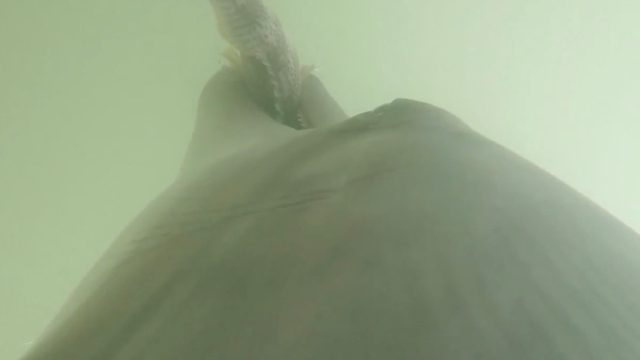
A dolphin fitted with a GoPro was caught eating eight venomous sea snakes in a single day—and scientists are baffled. While dolphins are known to play with sea snakes (and release them), eating them could be life-threatening for the mammals. Here’s what happened—and what researchers think might account for this strange behavior.
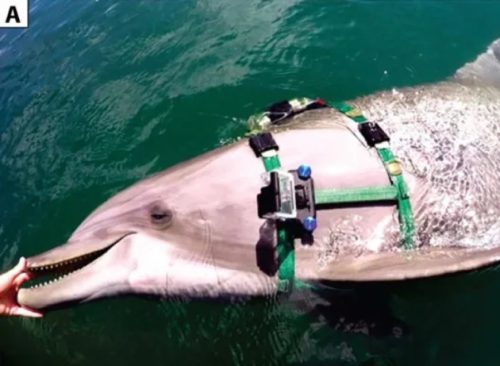
The US Navy trains bottlenose dolphins to locate mines with their sonar cells, but for this project two dolphins were strapped with GoPros so researchers could watch them hunt fish. The scientists at the National Marine Mammal Foundation in San Diego, California, were surprised when one of the dolphins decided she preferred snakes over fish, and ate eight yellow-bellied sea snakes in one day. This is the first time a dolphin has been documented eating sea snakes.
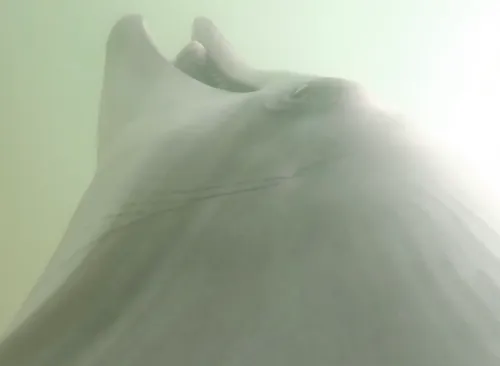
According to the study, the dolphin emitted “victory squeals” every time it caught a snake and ate it. “The dolphin clicked as it approached the snake and then sucked it in with a bit more head jerking as the flopping snake tail disappeared and the dolphin made a long squeal,” the study authors wrote. Dolphins usually make that noise when hunting and eating fish.
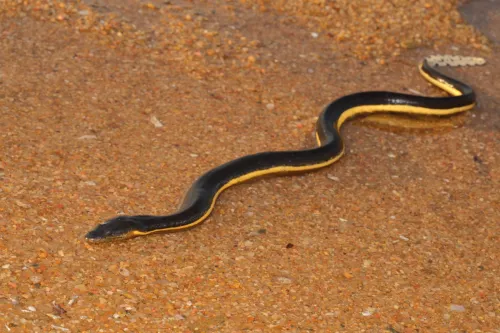
“The yellow-bellied sea snake is an outlier,” wrote the study authors. “We were at first skeptical that our dolphin had preyed on sea snakes and searched for possible fish of similar appearance. We were able to rule out other possibilities due to appearance of the head, tail, body marking and swimming motions of the snakes. Furthermore, near the time of our observed predation, some yellow-bellied sea snakes stranded on a beach within about 2 km of the site of our observations.”
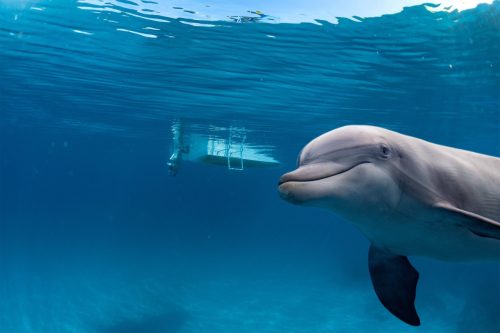
The study authors attempted to explain why the dolphin was eating the snakes, and floated the theory that the dolphin was displaying strange behavior because it wasn’t raised in the wild. “Dolphin Z that consumed sea snakes was aged 15 and had been born at our facility. Perhaps the dolphin’s lack of experience in feeding with dolphin groups in the wild led to the consumption of this outlier prey,” the study authors wrote. “The yellow-bellied sea snakes are viviparous bearing their young alive. Judging by our videos the snakes that were eaten may have been new born while the escaping snake was much larger–probably an adult. Although this is the first time dolphins have been observed to consume sea snakes, others have seen dolphins playing with sea snakes without ingesting them.”
Our dolphin displayed no signs of illness after consuming the small snakes. Our observations together with the earlier observations in wild dolphins suggests that sea snakes (especially newborns) could at times be prey for dolphins.
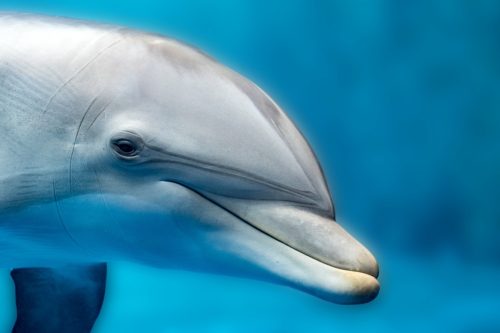
The dolphin didn’t get sick after eating the eight sea snakes, researchers found. “Our dolphin displayed no signs of illness after consuming the small snakes. Our observations together with the earlier observations in wild dolphins suggests that sea snakes (especially newborns) could at times be prey for dolphins.” Other mammals are known to eat sea snakes, experts say. “I’ve read that other large vertebrates rarely prey on the yellow-bellied sea snake. There are reports of leopard seals eating and then regurgitating them. This snake does have the potential to cause neurotoxicity after ingestion and its venom is considered fairly dangerous,” Dr. Barb Linnehan, director of medicine at the National Marine Mammal Foundation, said in a statement emailed to Insider.














